About
The California Institute for Community, Art & Nature (California I CAN) was launched in 2016 by Malcolm Margolin. Although recently created, it has a solid foundation in Malcolm’s deep friendships and working relationships with writers, artists, cultural leaders, activists, media, funders, and people at the core of political and economic power, as well as those from California’s most marginalized communities. As the Institute has developed, it has attracted staff and associates who have added their own diverse networks of working relationships and friendships. Core projects include:
- Working with the California Indian community to strengthen ongoing culture and help non-Indians better appreciate California’s oldest, deepest, and most abiding sense of itself.
- Maintaining Berkeley as a center of artistic vitality, environmental advocacy, and social innovation in changing times.
- Building new communities by instituting projects and convening gatherings that bring people from different social backgrounds and professional interests together.
- Using our experience in institution building, our networks of friendships, and our connections with sources of funding and with people who have institutional or political power to help partner organizations succeed.
Our Team
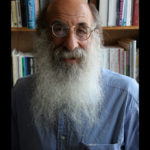
Malcolm Margolin
October 27, 1940–August 20, 2025
Founder and Creative Director
Malcolm was an author, publisher, and former executive director of Heyday (formerly Heyday Books), an independent nonprofit publisher and cultural institution in Berkeley, California. Through Heyday, he published hundreds of books and oversaw the creation of two magazines, News from Native California (1987) and Bay Nature (2001). He also co-founded The Alliance for California Traditional Arts, The Inlandia Institute, and was instrumental in the creation of a number of Indian groups including The California Basketweavers Association and Advocates for Indigenous California Language Survival. Malcolm has also written several books on California natural history, cultural history, and Indian life, including The Ohlone Way: Indian Life in the San Francisco-Monterey Bay Area (1978), which was named by the San Francisco Chronicle as one of the hundred most important non-fiction books of the 20th century by a western writer. He has received many prestigious awards, including a community service award from The San Francisco Foundation, Lifetime Achievement Awards from The Bay Area Book Reviews Association and the California Studies Association, a Cultural Freedom Award from the Lannan Foundation, and the Chairman’s Commendation from the National Endowment for the Humanities—the second recipient in the United States.
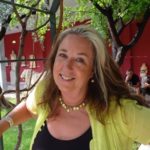
Claire Greensfelder
Executive Director
Claire is a lifelong organizer/campaigner for peace, planet and justice who believes that art, eloquence and beauty are often the best means to get one’s message across. Born and raised in Oakland and San Francisco, California, she has spent 37 years of her life in Berkeley—embedded in community. Her work for people and the earth has included executive leadership, strategic consulting and producing/editorial positions with over 40 non-governmental organizations, social service and educational institutions, artistic exhibitions, media projects and electoral campaigns. Key posts include Coordinator, Washington DC installation of Conversations with the Earth – Indigenous Voices on Climate Change (Multi-media exhibition, Smithsonian/National Museum of the American Indian); Co-Founder Women’s Global Call for Climate Justice; Climate Solutions Advisor, The Lia Fund; Deputy Director, International Forum on Globalization; Consultant/Executive Director, Martin Luther King, Jr. Freedom Center-Oakland; Project Director/Board Member, INOCHI/Japanese-US citizens group (Berkeley); Senior Advisor, Women in Europe for a Common Future (Munich) / Women’s Environment and Development Organization (New York City); Director, Greenpeace USA Nuclear Free Future Campaign, Co-Founder/Co-Director, San Francisco-Leningrad Ecological Arts Collaboration; Director, 3220 Gallery—San Francisco hub for US/Soviet exhibitions/events; Co-Chair, Peace Activists for Jesse Jackson, Director, CETA Youth Program Jane Addams Center/Hull House (Chicago), Environmental Educator, City of Berkeley, Berkeley Unified School District, (partial list). Claire is happiest when hanging out in nature, camping in the Sierra Nevada, painting landscapes along the Northern California coast, and/or cooking for friends in her Berkeley bungalow and backyard garden.
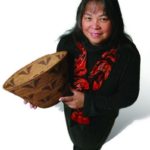
Jennifer Bates (Northern Sierra Mewuk)
California Indian Arts & Culture Festival Curator / Co-Producer
Jennifer is a traditional Mewuk basket weaver who has been weaving for almost 50 years. She teaches classes, conducts demonstrations and makes presentations on basketry and Mewuk and Central California Indian cultures. Jennifer was a founding board member and first chairperson for the state-wide non-profit California Indian Basketweavers Association (CIBA) and has been the coordinator of the California Indian Market at the Tuolumne Rancheria which is celebrated its 17th year in 2019. Jennifer curated and co-produced California I CAN’s inaugural California Indian Arts & Culture Festival which took place in Ohlone Park in Berkeley, California in June 2019. She joined with California I CAN to produce the 2nd Annual festival in 2020/2021 which may actually take place online due to Covid-19.
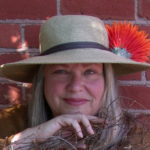
Pamela Michael
Communications Consultant / Executive Assistant to Malcolm Margolin
Pam is a writer, education reform activist and radio producer who has spent decades working to integrate environmental and arts education into the lives of children and their communities. Co-founder, with Robert Hass, of the much-honored River of Words organization, her Watershed Explorer curriculum has been used to train thousands of teachers, park rangers, youth leaders and other educators how to connect kids to the natural world and to their own imaginations, inspiring them to create stunning art and poetry, and helping them to speak “the language of landscape.” She served as the organization’s executive director 1995 to 2016. In 2011, River of Words became the flagship program of the new Center for Environmental Literacy at Saint Mary’s College of California, which she also founded and directed until her retirement in 2016.

Brian Shott
Editorial Coordinator, West Berkeley Shellmound Book Project
Brian Shott is a writer, editor, and historian who has lived in the Bay Area since 1991. His journalistic writing has appeared in the San Francisco Chronicle, the Los Angeles Times, and other publications. He received a PhD in U.S. history in 2015 from U.C. Santa Cruz, and is the author of Mediating America: Black and Irish Press and the Struggle for Citizenship, 1870-1914 (Temple University Press, 2019). He has taught history to inmates at San Quentin prison through Mount Tamalpais College.
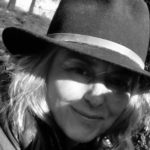
Julene Freitas
Administrative Coordinator/ Special Events Associate
Julene has over 20 years of administration and outreach experience working with many Bay Area non-profits including Restore Hetch Hetchy, the David Brower Center, the Children’s Defense Fund-CA and the Environmental Defense Fund. She is thrilled to join the team at California ICAN where she can use her broad range of skills, combined with her commitment to and passion for the natural environmental and social justice issues.
Julene holds a degree in Environmental Management and Restoration from Merritt College. She currently volunteers for the Marine Mammal Center and has volunteered for the Gulf of the Farallones Marine Sanctuary, and Inner City Outings (Sierra Club) as a river and cross-country skiing guide. During her free time, she loves adventures, exploring the outdoors with her two daughters and two dogs, dancing, getting lost in the woods, and swimming in the ocean.

Sushma Delaney Johnson
Program & Administrative Associate / Executive Assistant to Claire Greensfelder
Sushma is a young activist raised in Kensington, California. Following graduating early from El Cerrito High School, she joined the California I CAN team as Program and Administrative Assistant to the Associate (now Executive) Director in February 2021. After earning her associate’s degree in psychology from Berkeley City College, Sushma is now a junior at UC Berkeley with an intended major in psychology. She has unique talents for one so young—assisting in bookkeeping, database management, event production, catering, photography and videography, and whatever else is on the table. Her mass mailing skills are already legendary. Sushma is happiest when reading, doing photography, hiking in nature, weight lifting, hanging out with friends, watching obscure films, playing ultimate frisbee, rock climbing, and causing good trouble.
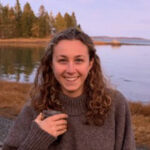
Lydia Lapporte
Program Associate
Lydia has served in multiple capacities at California I CAN since she first joined in 2017 as a student intern. She studied Environmental Studies and Studio Art at Whitman College where she received her BA in 2020 and has worked in garden-based education, research, publishing, as well as operations and programming for numerous organizations including Urban Adamah in Berkeley, California and Smithereen Farm in Maine where Lydia currently runs the Seaweed Commons, a public learning platform in service of supporting just seaweed economies and ecologies. Her research interests include commons-based resource use, political ecology, Indigenous studies, the intertidal, and new materialism. We are so grateful that Lydia has continued to work with California I CAN as a much valued Program Associate while also serving as Assistant to the Executive Director. In addition to her many organizational talents, Lydia creates small books and big weavings.
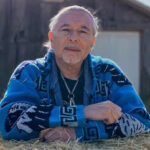
Gregg Castro (T’rowt’raahl Salinan / Rumsien-Ramaytush Ohlone)
Co-Chair California I CAN’s California Indian Advisory Board
Gregg Castro has worked to preserve his Ohlone and Salinan heritage for over three decades. Gregg is the Society for California Archaeology’s Native American Programs Committee Chairperson. Gregg is a Co-Facilitator for the annual California Indian Conference, a 30+ year annual gathering about California Indigenous culture. He is a Co-Founder/Advisor to the California Indian History Curriculum Coalition, based at CSU-Sacramento, promoting accurate school curriculum. He is now Culture Director of the Association of Ramaytush Ohlone, advising within their San Francisco Peninsula homelands. Gregg is a writer-activist within the California indigenous community.
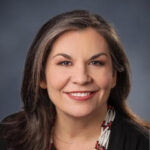
MIchelle La Pena (Pit River)
Co-Chair, California I CAN’s California Indian Advisory Board
Michelle L. LaPena is a member of California’s Pit River Tribe and a mother of three. She is an Indian law attorney and has owned and operated an Indian law practice since 2006. In addition, she has published a number of law review articles, essays and non-fiction articles on topics relative to her work with California Indian tribes. Michelle has served as a trainer in seminars with the Governor’s Office of Planning and Research regarding the implementation of SB 18, a statewide general planning law that she drafted in collaboration with Governor Gray Davis’ Legal Affairs Department in 2004. In 2006, she was featured on the cover of Los Angeles Lawyer Magazine with an article she co-wrote, entitled, “Real Estate Transactions in California’s “Indian Country”: How to Conduct Business with California Indian Tribal Governments and Businesses”. That same year, she left a prominent law firm to begin her own Indian law practice, which she operated successfully until the merger of her practice with Rosette, LLP in November 2018. She is extensively involved in developing statewide policy in California regarding cultural resources protection, including drafting, negotiating, and ensuring the passage of improved cultural preservation laws, including burial site protection and consultation requirements for new projects. Michelle received her B.A. in 1993 and her J.D. in 1998, both from the University of California, Davis. She is a member of the Pit River Indian Tribe, and is admitted to practice in California, all federal district courts in California, the Hoopa Valley Tribal Court and the San Manuel Tribal Court. She was a recipient of the 2015 Truman Capote Creative Writing Fellowship and earned her M.F.A. in Creative Writing from the Institute of American Indian Arts in 2017.
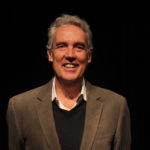
Mark Dean Johnson
California Indian Artists’ Archives Project Advisor
Mark Dean Johnson is professor of art at California State University, San Francisco. He was educated at Yale University, where he was a personal assistant to Josef Albers, and received his MFA from the University of California, Berkeley. He served previously as a professor at Humboldt State University in Arcata, California and associate dean of Academic Affairs at the San Francisco Art Institute. His publications include: Asian American Art: A History, 1850-1970 (2008: Stanford University Press), and At Work: The Art of California Labor (2003: California Historical Society Press).
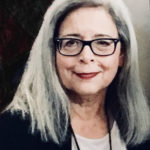
Sonia Tamez
California Indian Archives / Saving Our Stories Project Advisor
Sonia Tamez joined the California I CAN team in January 2020 as our California Indian Archives Project Coordinator. As a first step with the project, Sonia conceptualized, created and launched the “Saving Our Stories” Survey in order to assess the kind of assistance that is needed for individuals, families, and tribal communities to protect their archival collections. Once those needs have been identified, she will be helping to locate and develop resources to assist with archival preservation and protection. Sonia brings more than 40 years of experience in working with tribal and other communities, organizations, and governments, from local to global, She has worked in the areas of natural and cultural resource management, land management planning, cross-cultural collaboration, policy making, and capacity building, with a special focus in California. Sonia holds a Master’s degree in Anthropology. Her longtime work with California Indian communities and interest in community based historic preservation and museum policy has led to her involvement with California I CAN on this project.
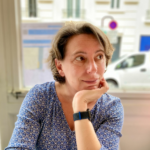
Rebecca LeGates
Webmaster and Graphic Designer
Rebecca is currently a freelance graphic designer after having worked with Malcolm at Heyday for almost twenty years. While her expertise is book design, she has also worked in marketing and web design as well as organizational management and technology maintenance. She is inspired by summer hikes in the local hills, the company of good friends, her family, and all things beautiful. Her portfolio can be viewed online at www.rebeccalegates.com.
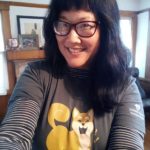
Patricia Wakida
Development and Planning Consultant
Patricia’s interests range from art, literature, history, and community. She has edited books for Heyday and others, has run major literary and cultural events, and worked on exhibits for the Japanese American National Museum. Patricia splits her time between The Alliance for California Traditional Arts, California ICAN and one of her great gifts to the world, baby Kumi. She also maintains her own linoleum block and letterpress business under the Wasabi Press imprint.
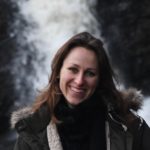
Erika Veidis
Program Fellow
Erika joined California I CAN in Autumn 2020 as a volunteer program fellow bringing with her a passion for environmental stewardship and community resilience. She is currently working as the Plantary Health Program Manager at the Stanford Center for Innovation in Global Health and spent the previous few years at the Planetary Health Alliance, a non-profit organization housed at Harvard University focused on understanding and addressing the intersections between global environmental challenges and public health, where she managed a global network of 200+ universities, NGOs, research institutes, and government entities and led community engagement, outreach, and education efforts. Erika has experience in environmental economics research and regenerative agriculture—including serving as a farmhand in the Upper Midwest and helping to construct an initiative focused on local food system resilience. She graduated from Harvard in 2015 with a BA in Government and Mind/Brain/Behavior, holds an MBA from Cal Poly, and serves on the board of the Harvard Alumni for Food and Agriculture. Erika believes in the importance of locally-rooted economies, bottom-up environmental and social action, and cultivating a sense of responsibility to place. In her free time, she skis, hikes, writes, plays guitar, and enjoys spending time—especially outside—with family, friends, and the Latvian community.
Alumni

Raymond Le Beau (Pit River)
Consulting Researcher / Organizer / Artist / Mapmaker Remapping California Project
Raymond LeBeau is a Pit River scientist and artist from California. He obtained a B.A. in Environmental Studies and Philosophy from UC Santa Cruz and is a current graduate student in the Geographic Information Science (GIScience) program at San Francisco State University. His research interests span both human and physical geography, including topics such as GIS and remote sensing, coastal and montane meadow ecology, geomorphology, process-based restoration, critical GIS and indigenous mapping.

Jonathan Malindine
Consulting Researcher / Organizer / Anthropologist Remapping California Project
Jonathan joined California I CAN in 2021 as an anthropologist with an abiding passion for preserving and strengthening Native American culture, sovereignty, and self-determination. As a NOAA Scholar, Graduate Research Fellow of the National Science Foundation, and federal Tribal Affairs intern, he has developed meaningful and collaborative relationships with many Native American Tribes from Alaska to California, and throughout the American Southwest. Jonathan holds both a BA and MA in Sociocultural Anthropology from UC Santa Barbara. Currently a PhD candidate, his dissertation project has focused on the development and function of Tribally-owned museums and cultural centers in Native communities, and the advancement of decolonizing research methods. An admirer of Native American material culture, Jonathan was trained through the Smithsonian’s Summer Institute in Museum Anthropology, studying collections of the National Museum of Natural History, and the National Museum of the American Indian. He has published articles on Northwest Coast halibut fishing technologies (link: , (PDF) Northwest Coast Halibut Hooks: an Evolving Tradition of Form, Function, and Fishing | Jonathan Malindine – Academia.edu) prehistoric aquaculture (link: (PDF) Prehistoric Aquaculture: Origins, Implications, and an Argument for Inclusion | Jonathan Malindine – Academia.edu), and has an upcoming Smithsonian book chapter on the importance of museum objects to Native source communities. In his natural environment he is often found with an ukulele in his hands, and enjoys singing and playing piano.
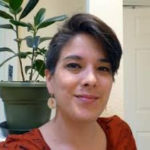
Brittany Britton (Hupa)
California Indian Artists’ Archives Project Advisor
Brittany Britton is an enrolled member of the Hoopa Valley Tribe, and holds an MFA in Craft from the Oregon College of Art and Craft. She is a practicing artist and curator. Previously she worked as Curator/Registrar at the Clarke Historical Museum in Eureka CA, working with North-West California Indigenous basketry and regalia. She is the incoming Gallery Director for the Reese Bullen and Goudi’ni Native American Arts Galleries at Humboldt State University in Arcata, California.
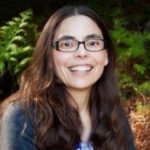
Susan Gehr (Karuk)
Consulting Archivist, California Indian Artists’ Archives Project
Susan Gehr has worked variously as a linguist, a librarian, and an archivist. Several years into learning to speak Karuk through community classes, and the Advocates for Indigenous California Language Survival’s Master-Apprentice Language Learning Program, Gehr finished an MA in linguistics, going on to work on Karuk language documentation and co-publishing the Karuk Dictionary with linguist William Bright. In the course of her work creating and collecting Karuk language materials for the tribe’s language program, Gehr became interested in what role archives and archivists have in Native American languages revitalization. She wrote Breath of Life: Revitalizing California’s Native Languages Through Archives, an oral history of AICLS’ Breath of Life Archival Institute for Indigenous California Languages, for her MLIS thesis at San José State University.
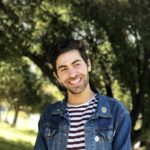
Zev Marx-Kahn
Program Associate / Saving Our Stories Data Analyst (2019-2021)
Zev Marx-Kahn grew up in Berkeley and is in his second year at the University of California, Los Angeles (UCLA) focusing on Geography and the social sciences. He first came to California I CAN as a Summer Intern in 2019 and returned in Summer 2020 as a half-time Program Associate. He has played a key role in the development of the survey tools for the Saving Our Stories Project led by Sonia Tamez. He is continuing on part time during his school year to assist with data analysis and general support for California I CAN projects. Extremely talented with diverse interests, while still in high school Zev wrote the climate change section of the Berkeley Unified School District’s sustainability proposal, which inspired his interest in community-based environmental activism. Zev can also be seen playing his flute and saxophone as well as singing and acting in plays and musicals. He hopes to continue working in non-profits and as a performing artist, using his art as a medium of activism.

Skye Michel
Intern (2019) / Program Assistant (2019-2020)
Skye is a recent graduate (May 2020) of the University of California, Berkeley, majoring in Conservation and Resource Studies (CRS) with a focus in ecopsychology and environmental sociology. While at Berkeley, Skye was the president of the CRS Student Organization and the Co-Development chair of the university’s DKA film society. Grateful for the opportunity to grow up in the mountains and along the coast of San Luis Obispo, California, Skye fosters a deep appreciation for place and a commitment to protecting natural spaces. In her free time she can be found hiking, cozy in her apartment writing letters to family and friends, or journaling and painting outdoors.

Max Bramer
Intern (2017) / Program Associate (2018-2019)
Max graduated from the University of San Francisco in 2018 with Bachelor of Arts degrees in Philosophy and in Environmental Studies. His professor Vijaya Nagarajan inspired his interest in The Commons and introduced him to the work of Malcolm Margolin. Max grew up in the Bay Area and has always felt inspired by the local wilderness, the California Coastline, and the Sierra Nevada, where he learned to appreciate wilderness and the ways in which we relate to it. He spends much of his time writing music, wandering around the green spaces of San Francisco, and drawing.
